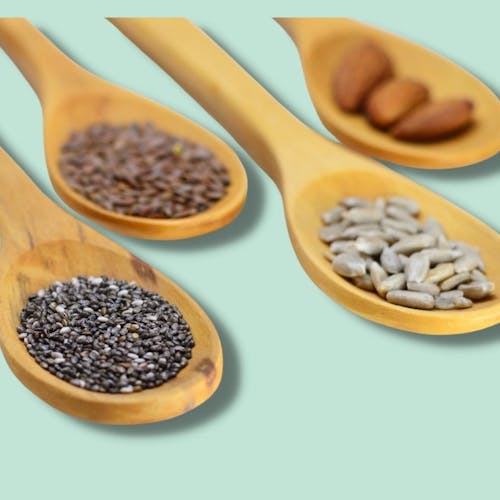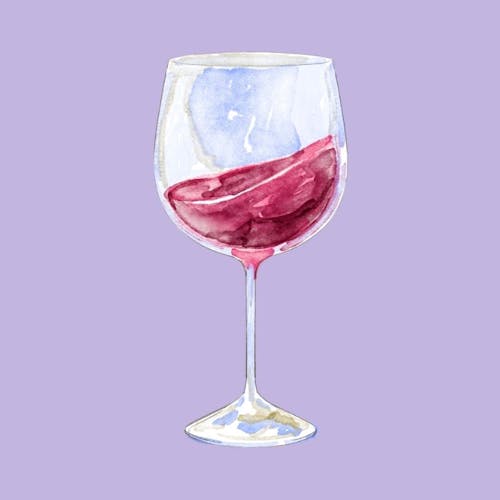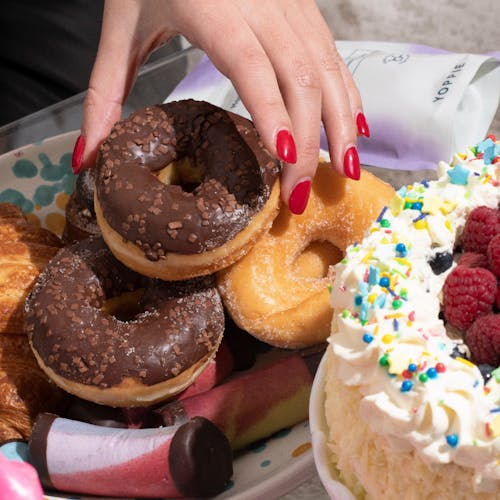This website uses cookies to enhance the user experience. By using Yoppie you are agreeing to our use of cookies.
Can Food Make Your Period Heavier? A Light-Period Pantry List
Written by Yoppie
31 Dec 2021
What makes a period light or heavy?
What can I eat to make my period lighter?
Is there anything else I should be doing?
Can the food I eat shorten the length of my period?
Is there anything I should worry about?
The food you eat can affect everything from your physical health to your productivity, but did you know it can also determine what kind of period you have? Light, heavy, short, long, we’re taking a look at what you’re eating that could be causing cycle issues, and what you may want to start consuming for a lighter period. Let’s go…
What makes a period light or heavy?
Whether you have light or heavy periods is determined by the balance of hormones, as too much or not enough estrogen or progesterone can affect the intensity and length of menstruation. For example, when you have higher estrogen and lower progesterone, it triggers the lining of the uterus to thicken, and the more imbalanced these hormones are, the thicker the lining can become.
When it’s time to shed that lining during menstruation, this can result in a heavier blood flow, called menorrhagia. Around 1 in 5 people with periods experience menorrhagia, and although it’s usually nothing to worry about medically, it can be frustrating to say the least.
What can I eat to make my period lighter?
What you want to hear is: “the more chocolate you eat, the lighter your period will be!”, and we would love to give you that good news, but unfortunately all we can offer are some science-backed foods that COULD work for you; it’s all about adding them to your diet and monitoring how they may be affecting your menstruation.
Let’s start with magnesium, a nutrient that many of us are deficient in. It’s thought to regulate the blood flow each month, and foods like nuts, seeds, whole grains, avocados and 80% cocoa dark chocolate (score!) are rich in magnesium, so include more of these in your diet to see how they affect you.
According to the Royal Women's Hospital in Australia, vitamin E is also thought to reduce blood flow, and is found in foods like vegetable oils, nuts (particularly almonds!), sunflower seeds, and green veggies like broccoli and spinach.
Unless you have allergies or intolerances, there is no harm in testing out some of these foods to encourage a lighter period, while also adopting a generally healthier diet to ensure you are in the best health during menstruation. If you experience heavy periods and want to look for alternative ways to reduce the flash flood of bleeding each month, don’t be shy about speaking to your doctor so they can rule out any underlying issues, and recommend possible medications, therapies, and even hormonal birth control.
Is there anything else I should be doing?
As well as adding some of the above foods to your diet, there are a few other things you can do to encourage a lighter blood flow during your period:
- Stay hydrated - As blood volume decreases during menstruation, drink between 4 and 6 more cups daily to help replace this faster. Water is preferable, but electrolyte drinks can also help.
- Add more iron - To up your iron intake and prevent anaemia, try eating more meat, beans, nuts, seeds, leafy greens, and seafood, which is packed with omega-3 fatty acids to help with period pain too. To help absorb the iron, eat vitamin C-rich foods like oranges and bell peppers. If you feel fatigued, dizzy, and your skin gets paler, speak to your GP to discuss possible anaemia.
- Take appropriate supplements - If you want speedier results, supplements can help. Look for a vitamin E supplement, and boost your magnesium with our Super Soother.
Can the food I eat shorten the length of my period?
Shortening the length of your monthly bleed isn’t always possible, but certain nutrients could help, specifically vitamin B6 as it’s known to increase progesterone, decrease estrogen, and improve pituitary gland function to balance hormones. You’ll find vitamin B6 in foods like eggs, fish and poultry, but you can take supplements too. There are also some herbal remedies that, although aren’t proven, have shown some promise in reducing the length of your period, such as fennel, ginger and raspberry leaf.
Is there anything I should worry about?
A light or heavy period isn’t usually a concern unless it has dramatically changed from your usual flow, but if you worry that your period is very light or very heavy, you can always speak to your GP to find out what’s going on.
If you have lost a lot of weight quickly, or are underweight, you may notice your period becomes much lighter or stops altogether if your fat level drops too low and ovulation halts - this can be dangerous and should be discussed with your doctor to return normal menstrual function. The same can happen to those who exercise excessively. If you believe this relates to you, talk to your GP to ensure you have a proper diagnosis, and the medication and support you need.
Do you have more questions about what foods help with your menstrual cycle? You can chat to the Yoppie community in our Full Stop FB group, or talk to us on Insta at @itsyoppie.
Section jump
Back to top
Subscribe To Our Newsletter
YOPPIE





© 2026 Yoppie is a registered trademark of Phlo Technologies Ltd.
Yoppie's supplements are not a substitute for a varied diet and healthy lifestyle and are not intended to diagnose, treat, or cure any disease. If you are pregnant, breastfeeding, have a medical condition or are under medical supervision, please consult with your doctor before taking any of our products.






